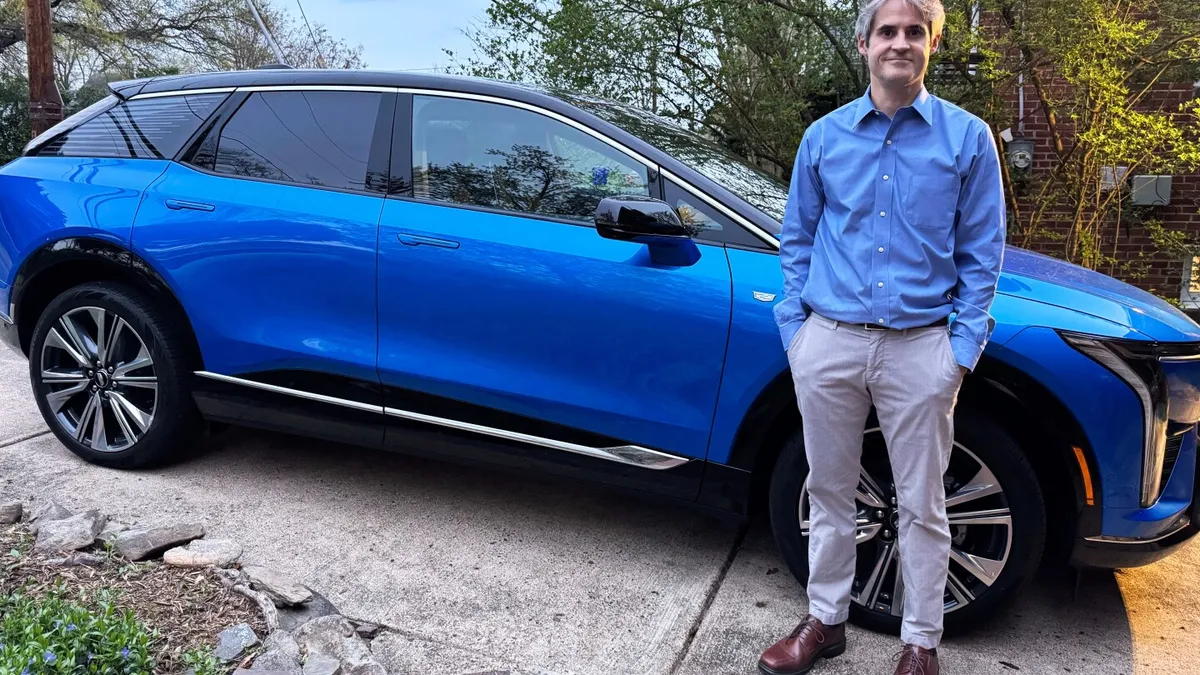
John Gutierrez, a resident of Austin, Texas, had been contemplating the purchase of a new laptop for the past year. As a photographer, he required a computer with faster processing capabilities and increased storage. With his sights set on a product from a well-known Taiwanese brand, Gutierrez was eager to make a move. However, everything changed when President Donald Trump announced sweeping new import tariffs, including a significant 32% tax on imports from Taiwan.
On the same day as the tariff announcement, Gutierrez decided to take action. He placed an order for a laptop with a base price of $2,400 from a New York retailer specializing in photo and video equipment. “I thought I’d bite the bullet, buy it now, and that way I’ll have the latest technology on my laptop and don’t have to worry about the tariffs,” he explained. His decision highlights a growing trend among U.S. consumers rushing to purchase big-ticket items before the impending tariffs take effect.
Economists predict that these new tariffs are likely to increase prices for everyday items, and they caution that this could lead to a slowdown in U.S. economic growth. The White House's hope is that these tariffs will encourage foreign countries to open their markets to more American exports. Ultimately, the goal is to initiate negotiations that could either reduce tariffs or prompt companies to ramp up production in the U.S. to avoid higher import taxes.
Rob Blackwell, a resident of Arlington, Virginia, faced a similar dilemma when he and his wife realized they needed a new car. Their current electric vehicle, which was older and had a limited range, was soon to be handed down to their daughter, who was on the verge of getting her driver’s license. “I have been telling my wife that for some time we were going to need to do it,” Blackwell shared, emphasizing that he was closely monitoring the president’s decisions regarding tariffs.
While Blackwell initially favored another electric vehicle, he concluded that leasing made more economic sense given the rapidly evolving technology in the automotive industry. He had his eye on the new General Motors Optiq, an American vehicle manufactured in Mexico, which could be affected by supply chain tariffs that might drive up costs. After learning about the forthcoming tariffs, Blackwell and his wife made plans to lease a car the weekend prior to the announcement.
The dealership honored the agreement they had negotiated before the tariffs were finalized. Although Blackwell found the salespeople pleasant to deal with, he sensed a change in their attitude. “They know what we know, which is suddenly it flips from a buyer’s market to a seller’s market very quickly,” he said, expressing satisfaction with his decision. “If this is what the government’s going to do, I need to get my act together.”
Lee Wochner, the CEO of Counterintuity, a marketing and strategy firm based in Burbank, California, also found himself in need of a new vehicle. He wanted a more presentable car for business meetings but had delayed the purchase due to his busy schedule. On March 27, he reached out to his firm’s car broker with urgency: “Ed, I need a car pronto and it’s got to happen by Sunday.” The broker provided several options, and Wochner ended up leasing an Audi Q3, which was delivered to his home that Sunday.
A quick calculation revealed how much Wochner saved by leasing before the tariffs took effect. He estimated that waiting would have cost him an additional $4,300. “One of the things my car broker said was that deals that were already written, some of the dealerships were ripping them up already and renegotiating them because they were afraid they weren’t going to be able to get enough new inventory at a price anybody would buy,” he explained. Wochner believes that prices are likely to keep rising as the U.S. loses trust in the international trade market.
“If you need a new car, if you can get that pre-tariff deal still, you should go get it,” he advised, highlighting the uncertainty surrounding future tariff announcements. “Who knows what next Wednesday might be like?”